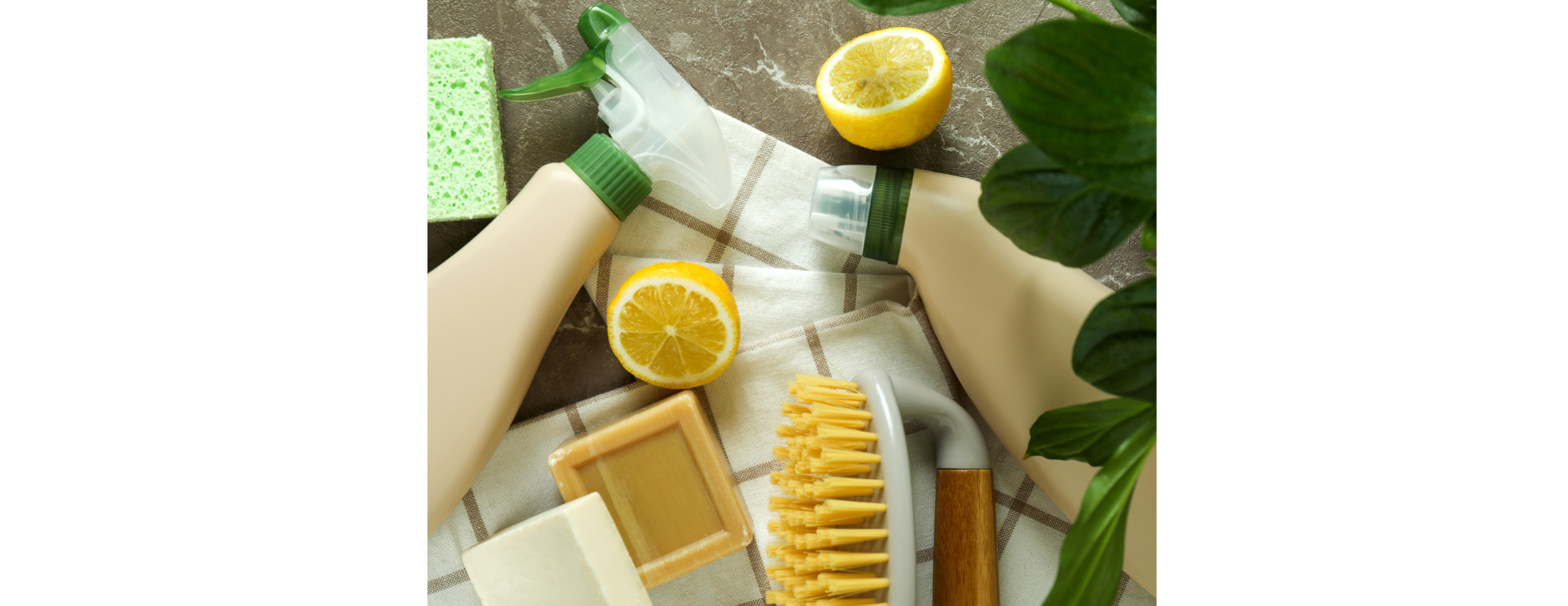A Housekeeper's Guide to Eco-Friendly Practices in the UK
As sustainability becomes an integral part of modern living, individuals across professions are seeking ways to incorporate eco-friendly practices into their daily routines. For housekeepers in the UK, there are numerous opportunities to make a positive impact on the environment while maintaining the impeccable standards expected in private households.
Here's a comprehensive guide on how housekeepers can adopt eco-friendly practices and contribute to a greener, more sustainable future.
Choose Eco-Friendly Cleaning Products:
Swap out conventional cleaning products for environmentally friendly alternatives. Look for cleaning solutions with biodegradable ingredients and minimal packaging. Many eco-conscious brands offer effective options that prioritise both the health of your home and the planet.
Embrace DIY Cleaning Solutions:
Explore do-it-yourself cleaning solutions using natural ingredients like vinegar, baking soda, and lemon. These common household items can be powerful allies in maintaining a clean and eco-friendly home. DIY solutions are not only effective but also cost-efficient and reduce reliance on commercially produced cleaners.
Opt for Reusable Cleaning Tools:
Minimise waste by choosing reusable cleaning tools. Invest in high-quality microfibre cloths, washable mop heads, and durable scrub brushes. This not only reduces your environmental footprint but also saves money in the long run by eliminating the need for disposable cleaning materials.
Practice Water Conservation:
Conserve water by being mindful of usage during cleaning tasks. Turn off taps when not in use, fix any leaks promptly, and consider using a bucket instead of running water for certain cleaning activities. Small adjustments can contribute to significant water savings over time.
Implement Proper Waste Management:
Sort and dispose of waste responsibly. Create designated bins for recycling, compost, and general waste. Ensure that recyclables are clean and dry before placing them in the recycling bin. Composting kitchen scraps further reduces the amount of waste that ends up in landfills.
Choose Energy-Efficient Appliances:
If possible, select energy-efficient cleaning appliances such as vacuum cleaners and washing machines. Energy-efficient models consume less power, reducing both utility bills and the household's overall carbon footprint.
Mindful Laundry Practices:
Laundry is a significant part of housekeeping, and adopting eco-friendly laundry practices can make a substantial difference. Wash clothes in cold water, air dry when possible, and use eco-friendly detergents. Consider using a clothesline or a drying rack instead of a tumble dryer to further reduce energy consumption.
Green your Cleaning Arsenal with Plants:
Introduce houseplants into the spaces you clean. Certain plants, such as spider plants and snake plants, are known for their air-purifying qualities. Not only do they contribute to a healthier indoor environment, but they also add a touch of natural elegance to the home.
Sustainable Linens and Towels:
Choose sustainably sourced and produced linens and towels. Look for textiles made from organic cotton, bamboo, or other eco-friendly materials. High-quality, durable fabrics not only enhance the luxurious feel of a home but also reduce the frequency of replacements.
Mindful Energy Usage:
Be mindful of energy consumption throughout the house. Turn off lights and appliances when not in use, and consider investing in energy-efficient lighting options. Educate household members on the importance of energy conservation for a collective effort towards sustainability.
Upcycling and Repurposing:
Explore creative ways to upcycle and repurpose items instead of discarding them. Repurposing old furniture, containers, or décor items not only reduces waste but also adds a unique and personalised touch to the household.
Sustainable Shopping Habits:
When replenishing cleaning supplies or household items, opt for products with eco-friendly certifications or those made from sustainable materials. Consider buying in bulk to minimise packaging waste and support brands committed to environmentally responsible practices.
Green Landscaping Practices:
If the housekeeping responsibilities extend to outdoor areas, adopt eco-friendly landscaping practices. Use organic fertilisers, practice water-efficient gardening, and consider incorporating native plants that require less maintenance and water.
Encourage Green Habits Among Residents:
Foster a culture of sustainability within the household by encouraging eco-friendly habits among residents. Educate them on the importance of recycling, turning off lights, and being mindful of energy usage. A collective commitment to sustainable practices amplifies the impact of your efforts.
Stay Informed and Adapt:
The landscape of eco-friendly practices is continually evolving. Stay informed about new sustainable technologies, products, and practices. Be open to adapting your approach based on emerging trends and innovations in the realm of sustainable living.
Adopting eco-friendly practices as a housekeeper in the UK is a journey towards creating a healthier, more sustainable living environment. By making thoughtful choices in cleaning products, tools, waste management, and daily habits, housekeepers can contribute to a greener future while maintaining the highest standards of cleanliness and hospitality. This commitment not only benefits the environment but also aligns with the growing demand for eco-conscious living within private households.
Here at Beauchamp Partners, we are often advertising for housekeeper jobs, so if you’re on the hunt for a new housekeeper role, then get in touch. As an Exclusive Household Staff Agency, we have years of experience placing candidates in housekeeping roles across London, UK and worldwide and can help you find the perfect position at the perfect rate.

